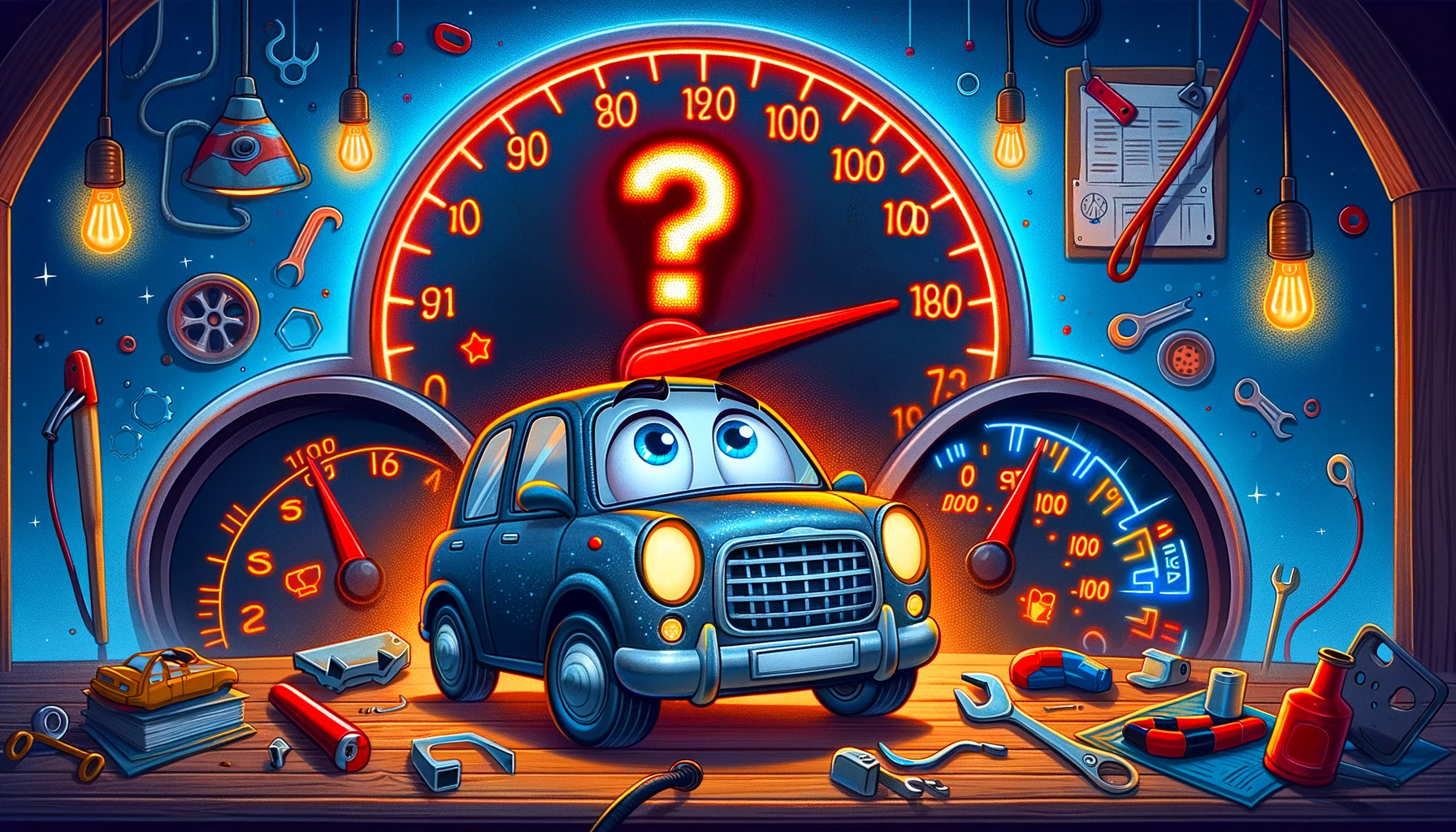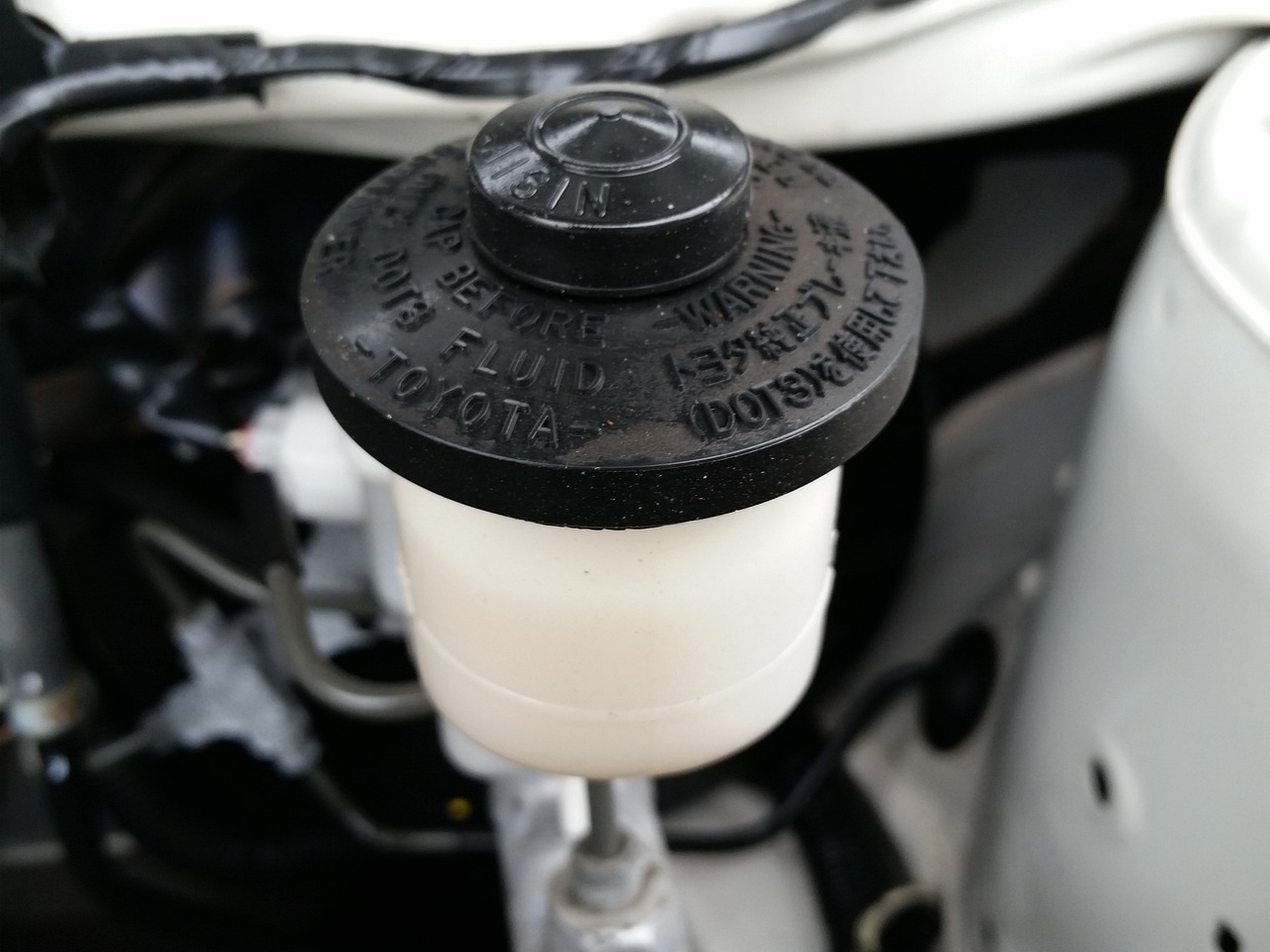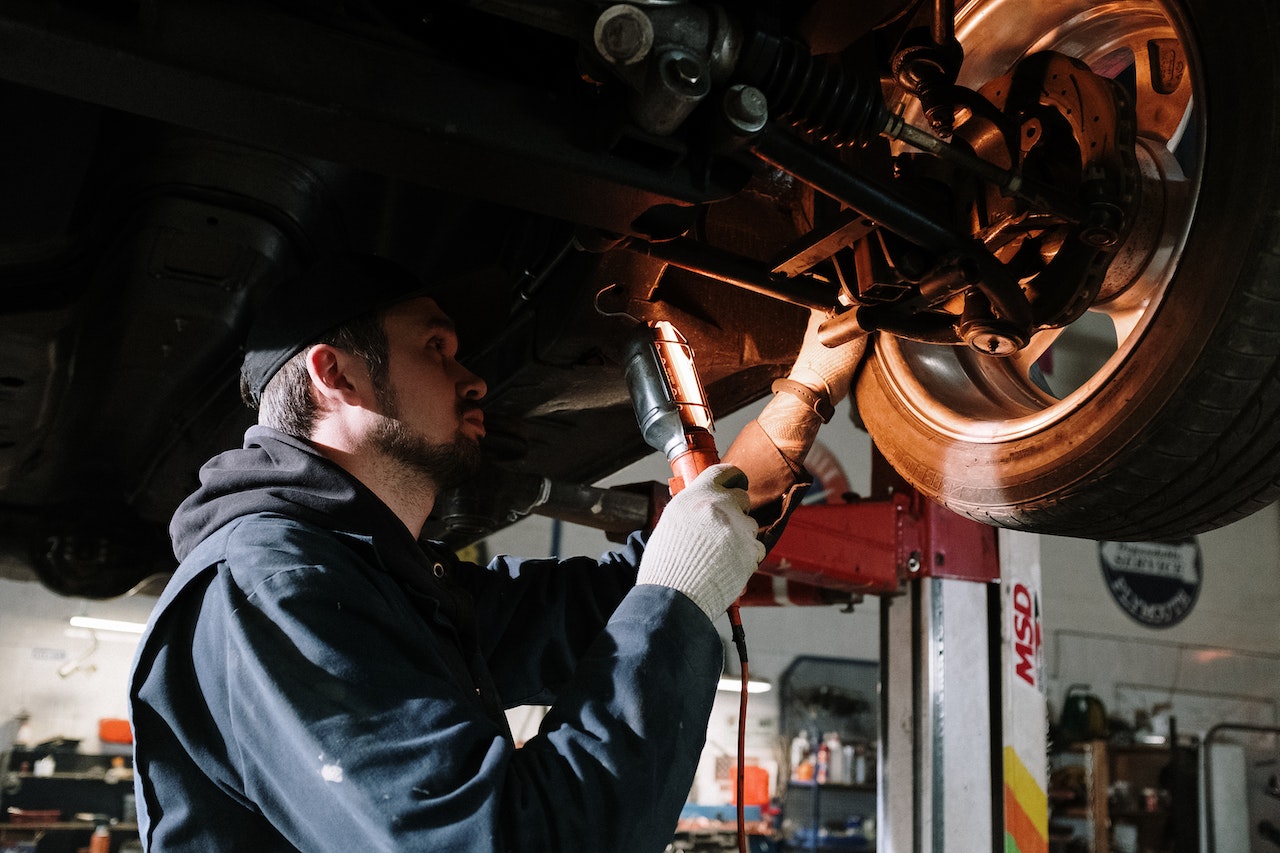The check engine light – that delightful little omen of mechanical mystery that seems to enjoy playing hide-and-seek with your sanity. It’s like a game of automotive roulette; you never know what you’re going to get. Is it a minor hiccup or the car’s way of saying, “I’m about to give you a very expensive day”? Let’s embark on this joyous journey of discovery together, shall we?
1. Keep Calm and Don’t Panic (Seriously, It’s Just a Light)
First and foremost, when that little illuminated beacon of doom flickers to life on your dashboard, do not – I repeat – do not panic. Sure, your car might be subtly hinting that you’re about to embark on an exciting adventure of costly repairs, but hey, let’s stay optimistic! It could be something as simple as your car saying, “I don’t like the quality of gas you’re feeding me.” So, take a deep breath, remind yourself that it’s just a light, and proceed with a calm, detective-like demeanor.
2. Check the Gas Cap: The Super Hero of False Alarms
You know that thing you twist and turn every time you refuel? Yes, the gas cap. This little rascal can cause your check engine light to come on if it’s not tightened properly. Before you start envisioning dollar signs and repair bills, give that cap a twist. If it clicks a few times, you might have just solved the mystery. Congratulations, Sherlock!
3. Use a Code Reader: Unraveling the Enigma
In the old days, we had to actually talk to mechanics to understand our cars. But now, in the magical age of technology, we have code readers. These handy little devices are like translators for your car’s cryptic messages. Plug one into your car, and voila – you get a code that you can then Google to find out if you’re dealing with a minor issue or if it’s time to start car shopping.
4. Common Culprits: A Quick Rundown
- Loose Gas Cap: As mentioned, it’s a common prankster.
- Oxygen Sensor: Think of the oxygen sensor as your car’s nose, sniffing out the exhaust to make sure everything smells right. When it gets stuffy (fails), your car starts guzzling gas like a teenager raiding the fridge. It might need a change.
- Catalytic Converter: The catalytic converter is like a party bouncer for your car’s exhaust, making sure no bad gases crash the Earth’s atmosphere party. If this is the problem, your wallet might feel a bit lighter soon.
- Spark Plugs: They are the tiny wizards in your engine, casting spark spells to keep things running; if they go on strike, your car’s magic sputters like a bad magic trick. When they demand a replacement, it’s less ‘abracadabra’ and more ‘open your wallet’.
- Mass Airflow Sensor (MAF): This part measures the amount of air entering the engine, crucial for your car’s computer to balance and deliver the right fuel mix. When it goes haywire, it’s like your car getting the sniffles.
- Evaporative Emission Control System (EVAP): This system prevents gas fumes from escaping into the atmosphere from your fuel tank and charcoal canister. A problem here is like a small burp in your car’s fuel system, often a simple fix but annoying nonetheless.
- Exhaust Gas Recirculation Valve (EGR): It’s there to reduce nitrogen oxide emissions and can get clogged or malfunction. Imagine your car trying to be eco-friendly but getting a bit clogged up in the process.
- Thermostat: Regulating the engine’s temperature is its job. If it fails, it’s like your car having a fever – not too hot, not too cold, but just right is what you want.
- Fuel Injector: They spray fuel into the engine’s cylinders. If they misbehave, it’s like your car having a hiccup in its fuel diet.
- Ignition Coil: This part transforms the battery’s low voltage to the thousands of volts needed to create an electric spark in the spark plugs to ignite the fuel. If it fails, it’s like your car’s trying to start a fire with wet matches.
5. When in Doubt, Consult a Professional (Preferably One You Trust)
If the code reader spits out something that sounds like a secret spy code, or if you’re just not into DIY automotive diagnostics, it’s time to see a professional. Choose a mechanic like you choose a doctor – look for good reviews, ask for recommendations, and avoid the ones that prescribe expensive treatments for a sneeze.
6. The Professional Opinion: It’s Not Always a Scam
So, you’ve decided to visit your local mechanic, a mystical figure who speaks fluent car language. Here’s a pro tip: when they start explaining what’s wrong, try not to look too confused. Nod sagely as they talk about catalytic converters, mass airflow sensors, and other car organs you didn’t know existed. Remember, it’s okay to ask questions. Yes, even questions like, “Can you say that again, but pretend I know nothing about cars?” Because, honestly, isn’t that the truth?
7. The Cost of Ignoring It: A Thrilling Gamble
You might be tempted to just ignore the light. It’s an adventurous approach, akin to ignoring a fire alarm because you don’t see any flames. However, much like playing poker with your car’s health, the stakes can get high. That small issue can turn into a mechanical monster, ready to devour your bank account. So, if you’re a fan of high-stakes gambling with your hard-earned cash, by all means, ignore the light. For everyone else, addressing the issue early is the less thrilling but far smarter route.
8. DIY Fixes: For the Brave and the Bold
Feeling courageous? There are a few things you can try at home. Replacing spark plugs, changing the air filter, or even tackling that oxygen sensor can be done with a bit of research and a lot of bravery. Just remember, YouTube is your friend, and so is that one buddy who claims to know everything about cars. Warning: DIY repairs may lead to an increased sense of accomplishment or a tow truck. It’s a 50/50.
9. The Waiting Game: It Might Just Turn Off on Its Own (Wishful Thinking)
Sometimes, the light comes on for reasons as mysterious as its sudden disappearance. If you’ve checked the common issues and nothing seems amiss, you could play the waiting game. Drive a few more miles; sometimes the light turns off as mysteriously as it appeared. But remember, this method is not recommended by mechanics, your wallet, or basically anyone with common sense.
10. Embrace the Journey: Becoming One with Your Vehicle
At the end of the day, the check engine light is more than just a warning. It’s a journey into the heart of your car, a bonding experience with your four-wheeled companion. You’ll learn new terms, meet interesting people (mechanics), and maybe, just maybe, you’ll emerge as a more car-savvy individual.
In conclusion, the check engine light is not just a light; it’s a call to adventure, a test of wills, and a chance to prove your automotive prowess (or lack thereof). Treat it with respect, a bit of humor, and a healthy dose of pragmatism, and you’ll navigate this journey just fine.
Pro Tips: More Advice for That Pesky Check Engine Light
- Keep a Maintenance Log: Your Car’s Diary
Start a maintenance log for your car. Every time you service it or encounter an issue, jot it down. This log can be a lifesaver in understanding recurring problems or proving to your mechanic that, yes, you did change the oil just 3,000 miles ago.
- Upgrade Your Gas Station Choices: Not All Fuel Is Created Equal
Consider upgrading your fuel. Sometimes, using a higher grade of gasoline or switching fuel stations can help, especially if your car is picky about its diet. It’s like choosing a fancy restaurant over fast food for your car.
- Embrace the Check Engine Light Tester at Auto Parts Stores
Many auto parts stores offer free check engine light testing. Take advantage of this service. It’s like getting a free sneak peek into your car’s secret thoughts.
- Be Alert to Changes in Car Behavior
Pay attention to any changes in your car’s performance, sounds, or smells when the check engine light comes on. These clues can be like pieces of a puzzle, helping you or your mechanic diagnose the issue more accurately.
- Educate Yourself: Knowledge Is Power (and Savings)
Learn the basics about your car. Understanding simple terms and components can save you from being bamboozled at the mechanic’s. Plus, it’s always impressive at parties. You may begin by reading: How does a car engine work?
- The Power of a Second Opinion
Don’t be afraid to get a second opinion if a repair seems too expensive or complex. It’s like getting a second doctor’s opinion, but for your car.
- Emergency Fund: Your Car’s Safety Net
Set aside an emergency fund for car repairs. It softens the blow when your car decides to throw a financial curveball your way.
- Warranty and Insurance: Know Your Safety Nets
Be aware of your car’s warranty and insurance coverage. Sometimes, the issue might be covered, saving you from financial despair.
- The Art of Negotiation: Don’t Be Afraid to Bargain
Learn the art of negotiation. Sometimes, repair costs can be negotiated, especially if you’re a regular customer or have done your homework on the typical costs of repairs.
- The Check Engine Light as a Reminder: Regular Maintenance Is Key
Use the check engine light as a reminder to keep up with regular maintenance. Regular check-ups can prevent many of the issues that cause the light to come on in the first place.
In the end, while a check engine light might be an annoyance, it’s also your car’s way of communicating with you. Treat it with respect, respond promptly, and your vehicle will continue to serve you well. Safe driving!
Frequently Asked Questions (FAQs) About Your Check Engine Light
It’s like a dental checkup – sometimes it’s just a cleaning, other times it’s a root canal. If the light is steady, it’s less urgent but shouldn’t be ignored. If it’s blinking, treat it like an emergency and get it checked out ASAP.
Yes, but it’s like walking on thin ice. Pay attention to your car’s performance and get it checked out soon. If the car is acting weirdly, it’s better to play it safe and minimize driving.
Sometimes, yes. It’s like your car changing its mind. However, it’s always good to get it checked to ensure there’s no underlying issue.
It can range from the cost of a coffee (tightening a gas cap) to a luxury vacation (replacing a catalytic converter). It really depends on the issue.
If you have a code reader and a sense of adventure, absolutely. It’s like solving a puzzle. But for complex issues, it’s better to consult a professional.
It’s not usually a false alarm, but it can be something minor. It’s like your car’s way of saying, “Hey, pay attention to me!”
Yes, regular maintenance is like regular exercise for your car – it keeps it healthy and can prevent many common issues.
It might, but it’s like putting tape over a leak. The issue will likely reappear if not properly addressed.
Ignoring it is like ignoring a cough – it could be nothing, or it could be something serious. Better to check it out than regret it later.
Rarely, but yes. Sometimes the light itself is the issue, making your car the boy who cried wolf.



